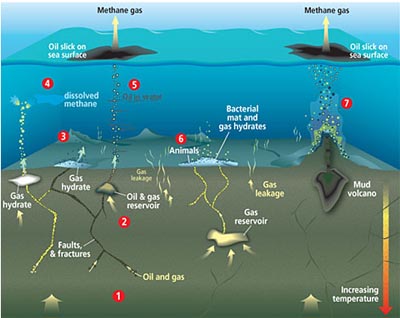
Atoms for Peace
As if the Middle East wasn't already in a whole mess a' trouble, them Iranians done 'n introduced nu-cu-lar bombs into it. Well, actually, Israel already did that a generation ago, but don't tell anybody.
So now everyone from Egypt, to Saudi Arabia, to the United Arab Emirates (UAE), to Yemen is now lining up to join the nuclear club (with American aid and blessing). What is a non-proliferation regime to do?
Researchers at MIT have been partnering with the UAE to develop civilian nuclear plants that are less susceptible to having fissile material stolen by terrorists and other baddies. The UAE's nuclear strategy is to import fuel from abroad, thus avoiding weapons grade material being available for sticky fingers within the Emirates. These new plants under development would also require refueling far less often, reducing the opportunity for theft en route.
Will it be enough? Let's hope so, because the Gulf is inevitably going to be a nuclear club. The Nuclear Non-Proliferation Treaty does not prohibit the development of civilian nuclear power, and explicitly recognizes the right of all sovereign nations to pursue the peaceful atom as long as they can demonstrate that their nuclear programs are not being used for the development of nuclear weapons.
So why would the most oil and natural gas rich countries on Earth want or need to pursue nuclear power? Is civilian nuclear power really just a cover to acquire the capacity to blow each other to smithereens? Maybe, but there are perfectly rational and pressing motivations at work here, too.
First off, oil and natural gas do not equal electricity. Iran, in particular, has an acute electricity shortage, owing to a lack of capitalization in its energy infrastructure (owing in turn to the three decades of embargoes placed on it by the United States). To transform these gallons into gigawatts requires the costly, technologically-advanced, sometimes decade-long construction of gas-fired turbine plants and the like.
Secondly, oil and natural gas-fired plants are dirty and inefficient. Before you scoff at the environmentalist motives of villainous oil sheikhs, consider this: Iran (Axis of Evil Member #2) currently has the highest percentage of domestic energy in the region produced from renewable sources, primarily hydroelectric dams. This year, that dependence on hydroelectric led to rolling blackouts during a severe drought. The UAE, in particular, is developing unprecedented efforts to groom clean energy systems and technologies, to turn back the clock on some of the most concentrated air pollution problems in the world. Tehran, too, with some of the worst traffic and air pollution of any world metropolis, is concerned about developing cleaner energy alternatives. In part, this is a recognition that oil is a one-time geological gift, and the oil-rich nations of the Middle East must plan for the post-oil era. Also, there is the need to keep up appearances for the newly environmentalist nations (and customers) of the West.
Thirdly, oil-producing countries want to save as much oil as they can for export. In many Middle Eastern nations, like Iran, Egypt and Yemen, gasoline is heavily subsidized by the government. Selling fossil fuels domestically--either refined as gasoline, or for use for electricity generation--is an extremely unprofitable enterprise. These resources fetch a much higher price on the market-driven global exchanges. More to the point, rents on fossil fuels are the primary if not the sole source of copious government revenues in these nations. Each barrel of oil diverted from export toward the needs of domestic electricity generation is another bale of petrodollars swiped from government coffers. Iran, in particular, is loathe to divert its oil and natural gas production towards domestic electricity requirements because fossil fuels are its primary exports and a valuable contributor to its current account and government revenue (owing again to the restrictions of American oil embargoes). With plentiful capital available for investment in nuclear infrastructure, petro-states are jumping at the chance to produce as much domestic electricity as possible with nuclear power.
Lastly, and perhaps most vitally, the truly finite resource in the Middle East (and increasingly worldwide) is fresh water. The Gulf States of Bahrain, Qatar, and the UAE have almost entirely exhausted their freshwater aquifers. Lebanon, Israel, Jordan and Syria all quibble over the Jordan River as their sole source. In a region not known for its rainstorms, the only option for fast-growing populations straining modest water reserves is desalinization of sea water. Desalinization is an extremely energy-intensive process, requiring massive and consistent imputs of electricity. Nuclear energy fits the bill perfectly.















